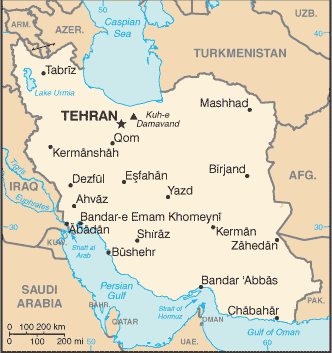The P5+1 talks with Iran are set to resume again Tuesday in Geneva, with Iranian officials planning to offer a “road map” to a complete resolution of the ongoing dispute on their civilian nuclear program.
 Details of this “road map” are not yet publicly known, and several different reports as to their content have emerged, though Iran is apparently planning a broad deal involving limitations of their civilian enrichment, and agreeing to additional “transparency” measures above and beyond those required by their safeguards agreement with the IAEA.
Details of this “road map” are not yet publicly known, and several different reports as to their content have emerged, though Iran is apparently planning a broad deal involving limitations of their civilian enrichment, and agreeing to additional “transparency” measures above and beyond those required by their safeguards agreement with the IAEA.
But Iran’s not going to make such major concessions without anything in return, and while the US is on the one hand holding out the prospect of lifting some of the sanctions against the nation, they are also downplaying the chances of any real “breakthrough” at the talks, and saying any sanction relief would be “targeted.”
This of course is going to be problematic, and reflects the difficulty of “partial” deals, as Iran is unlikely to agree to give up too much in return for too little, since it would lead to a future position where much of the sanctions remain intact, and they don’t have anything left to offer the US to ease them.
That’s why the road map is seen as essential for the Iranian government, allowing both sides to set a schedule for future rapprochement including scheduled sanctions relief as the process moves forward.
There is a lot of hope that such a deal can be reached, as the Rouhani government is looking for a final deal in a way that his predecessors had neither the domestic support nor international credibility to put together. The big question is where the Obama Administration comes out on this, with a very real possibility that the rest of the P5 will endorse the Iranian plan and the US will not simply to avoid offending Israel, which is against any deal.


